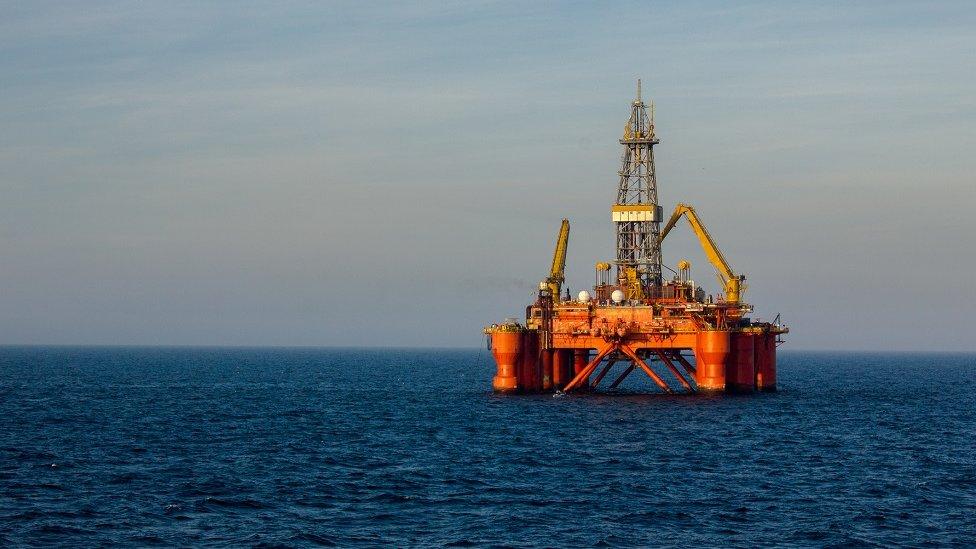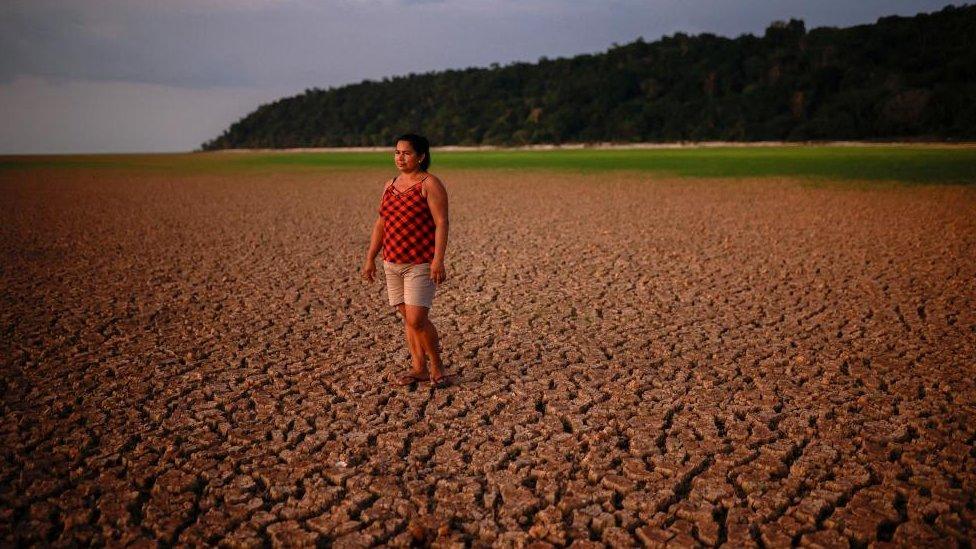Climate Change: Squeezing North Sea dry will harm Paris targets
- Published
- comments
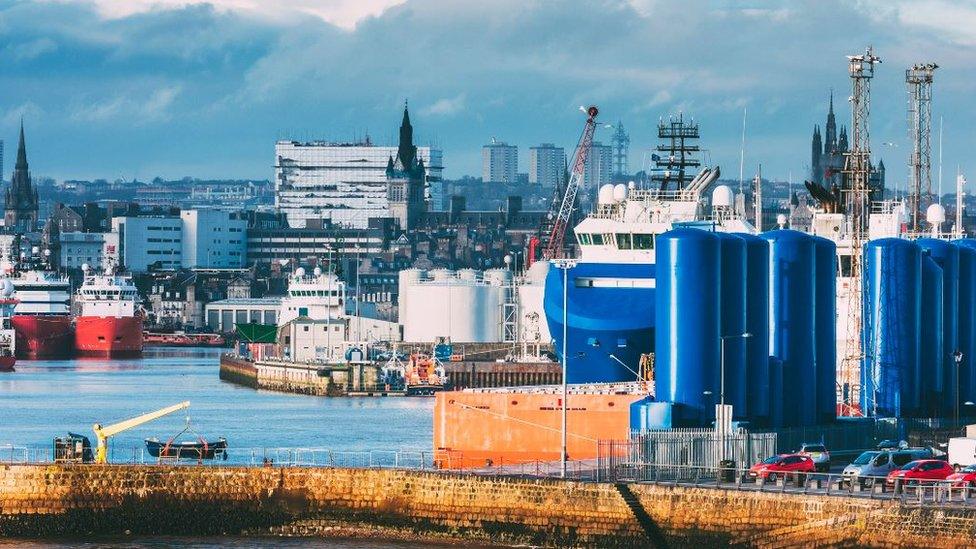
Much of Scotland's oil industry operates out of Aberdeen Harbour
Extracting all remaining oil and gas reserves would see the UK miss its climate change commitments, Friends of the Earth Scotland (FoES) has claimed.
The group says the target of limiting global warming to 1.5C would not be met if the 5.7 billion barrels in current oil and gas fields is burned.
The industry expects to produce another 20 billion barrels and wants the focus to be on its use rather than volume.
They insist the sector is central to developing cleaner technologies.
FoES has instead called for an urgent phasing-out of fossil fuels.
The environmental campaign group wants governments to stop issuing licences for new oil fields and revoke permits for undeveloped ones.
In a report, called Sea Change, it also calls for a rapid phase-out of subsidies and tax breaks for exploration, and suggests that jobs created in clean energy industries could be three times the number lost in oil and gas.
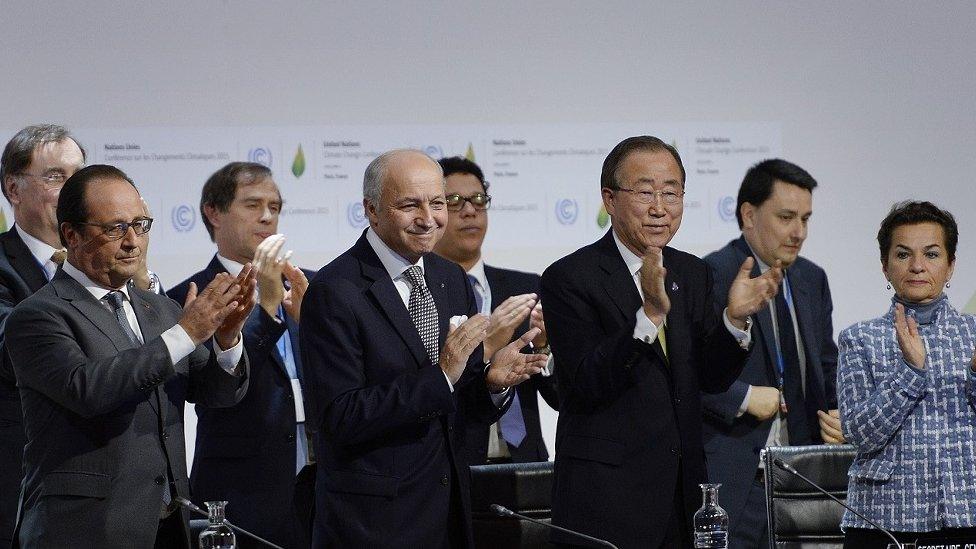
The Paris deal on climate change was hailed as a landmark
Mary Church, FoES's head of campaigns, told BBC Scotland: "Climate science is clear that we urgently need to phase out fossil fuels, yet the government and big oil companies are doing everything they can to squeeze every last drop out of the North Sea.
"To tackle the climate emergency head-on we must ban oil and gas exploration now, and redirect the vast subsidies propping up fossil fuel extraction towards creating decent jobs in a clean energy economy.
"Real climate leadership means making tough decisions now that put us on a path to a climate safe future. A just transition for workers and communities currently dependent on high carbon industries is an essential part of that."
The report was written for FoES by Oil Change International, an organisation which advocates a move away from fossil fuels.
It found that opening new fields would nearly quadruple the emissions from UK oil and gas.
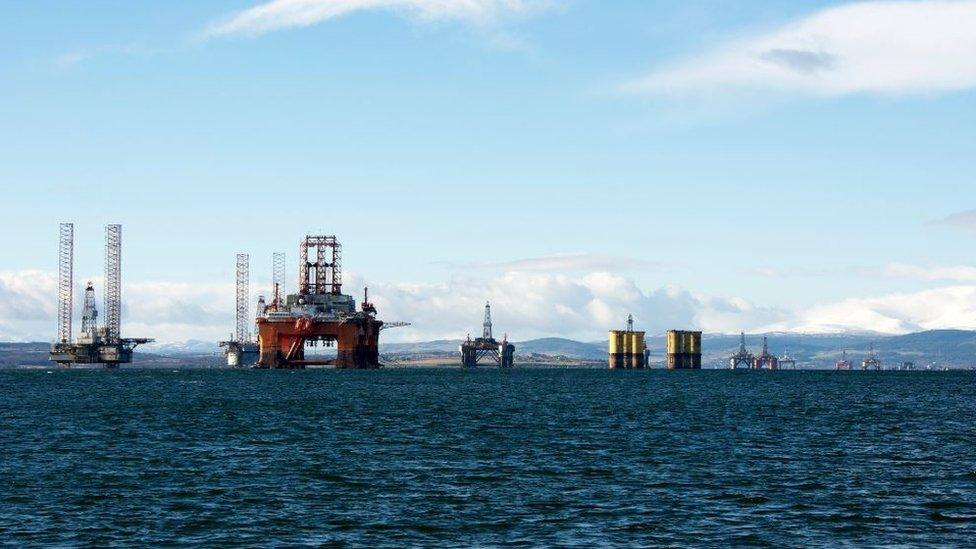
Industry body Oil and Gas UK estimates that there are 10-20 billion barrels of oil still to be recovered from UK waters, about three quarters of which have not be drilled or even discovered.
Chief executive Deirdre Michie said: "The UK's offshore oil and gas industry is part of the solution. The facts show that we need a managed and comprehensive transition towards a lower carbon future.
"Our industry can play a key role in the transition, reducing emissions from offshore production and helping the UK to lead on carbon reduction technologies, including the switch to hydrogen and long-term storage of CO2.
"This will ensure the UK continues to enjoy secure and affordable energy alongside an accelerating transition to a low carbon future."
The Scottish government has committed to making Scotland "net-zero" by 2045 in line with recommendations from the Committee on Climate Change.
That will be the point where we're emitting the same volume of greenhouse gases as we're offsetting.
An amendment to the Climate Change Bill, which sets out the new target, has been put forward by ministers.
'World leader'
With a further pledge to reach net-zero only through domestic measures, it would make it the most ambitious target in the world.
A Scottish government spokesman said: "There is no bigger priority than tackling climate change, and Scotland is already well recognised as a world leader in doing so.
"The first minister has accepted the recommendations from the Committee on Climate Change to increase targets on tackling and reducing emissions. We have therefore committed to reaching net zero emissions by 2045, and are looking at a range of policies to make sure that they align with that increased scale of ambition.
"The domestic oil and gas industry and its supply chain can play a positive role in supporting the low carbon transition. We are committed to achieving a carbon-neutral economy and to managing that transition in a way that is fair for all."
The Department for Business, Energy and Industrial Strategy (BEIS) said in a statement: "The UK is proud to be a global leader in tackling climate change.
"We were the first country to raise the issue on the international stage, and to introduce long-term legally-binding carbon reduction targets, and we have gone further than any other G7 nation by cutting our emissions by 40% since 1990.
"The best way to meet our climate targets in a sustainable way is to manage oil and gas production from our relatively small domestic basin while reducing our use of fossil fuels - which is exactly what we are doing."
- Published11 March 2019

- Published4 February 2019
